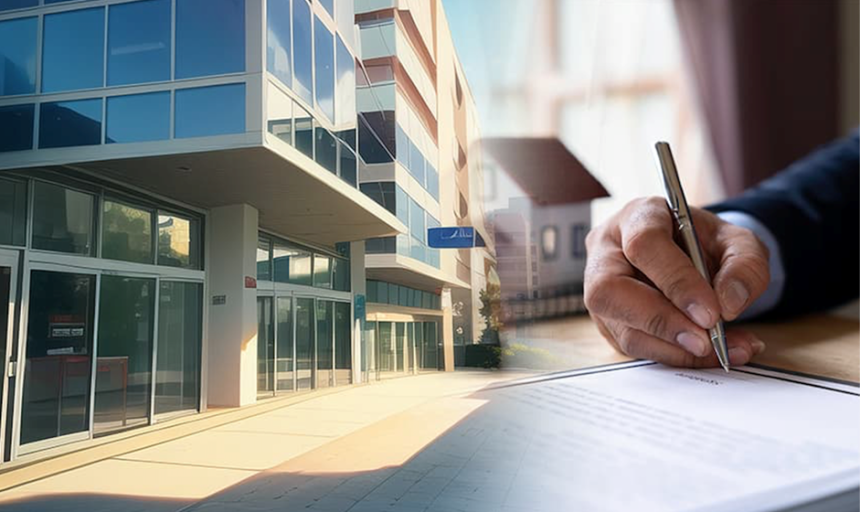Commercial real estate or income property, known by the abbreviation CRE, refers to property that will form commercial residential real estate that is used solely to sustain the business, or related purposes allocated to earn money and serves to provide a working space for employees. By commercial property, we mean a broad real estate market that includes medical centers, large hotels, shopping malls, retail stores and farmland, warehouses and garages, as well as the office buildings covered.
Commercial office space, industry, multi-family rental purposes, and purchased real estate in this broad real estate market class often fall into the commercial property category as it requires more commercial capital and investment from investors than residential real estate.
Public real estate investment trusts (REITs) offer a convenient way for individuals to invest indirectly in commercial real estate.
Commercial real estate has two main factors that can explain its difference from residential property. Residential properties include structures only reserved for human habitation. Commercial real estate, as the name suggests, is used in commerce, and multi-unit rental properties that function as housing for tenants are classified as business activities for the landlord. If you want to elaborate this explanation in a single sentence, the structures used to open a business that will help you earn money indirectly from the purchased property or after it is purchased are in the commercial property category and provide you with financial gain.
What are the Features of Commercial Properties?
To make sure that you are making the best commercial real estate investments, you should pay close attention to certain features when buying real estate. The features you should have in commercial real estate are listed below.
- Great Location: Before investing in any commercial property project, the investor needs to make sure that the location of the property is strategically placed. The location of the commercial property is one of several factors that positively or negatively affect the value level of the property. For this reason, knowing the accessibility of the location, the population of the district, the businesses around the real estate, and the level of competition contained in the location will be of great importance in determining the value of the commercial property and calculating the investment it will bring.
- Building Performance: When purchasing a commercial property, always research previous projects from the company that built the structure to understand the performance of the structure before purchasing. This research includes researching return and capital growth performance. Having the asset’s historical background gives you a clear idea of the asset’s strengths, weaknesses, and asset type. It will also help you understand current and future trends, rental income, tenant profile, and other information that can help you develop a budget.
- Infrastructure of property: Each city has a different infrastructure that supports the growth of commercial properties. Infrastructures such as roads, railways, airports, and hospitals located next to the building always positively affect the value of an area. If the property is located in an area with adequate infrastructure, it can increase demand for commercial property.
- Finance: Investing in a commercial property can be more complex than financing a residential investment. Sometimes you may even need to hire an accountant. It is recommended that the investor conduct a financial credit report review before investing in commercial property. In this way, a more suitable investment type can be selected according to the reported and analyzed credit rating.
What are the Types of Commercial Properties?
If you think about what a commercial building is and how it is classified, here is the answer. Each building type in the commercial real estate market consists of five main categories, each of which has different uses: Types of commercial properties are listed below:
- Offices
- Retail – retail stores, shopping malls, department stores
- Industrial – warehouses, factories
- Leisure – hotels, bars, restaurants, cafes, sports facilities
- Health – medical centers, hospitals, nursing homes
Let’s dive into these categories:
- A1 shops
- A2 financial and professional services
- A3 restaurants and cafés
- A4 drinking establishments
- A5 takeaways
- B1 business
- B2 industrial
- B8 storage or distribution
- C1 hotels
- C2 residential institutions
- C2A secure residential institution
- C3 homes
- C4 houses in multiple occupations
- D1 non-residential institutions
- D2 entertainment and leisure
How to Buy Commercial Property?
Buying commercial property is not as simple as it seems. Once you find the right property for your goals, you have a lot of work to do. First of all, you have to secure your Financing for this job. You may also want to consider hiring professionals who can guide you through your work. Hiring this person involves locking in a deal that works for both you and the seller. Only after completing all these procedures will you have an attractive investment opportunity. The returns on commercial real estate will be higher than the average real estate.
How to Buy Commercial Property in Turkey?
Foreigners can buy a property in Turkey in their names, provided that the properties are located in towns (that is, there is a municipality in the region where the property is located and the property is within the borders of that municipality or district). However, they are required to buy property in Villages or rural areas and outside of military zones, as they are not allowed to buy property or land in these areas.
To obtain a title deed to a property, an application must be made to the local Land Registry where the property is located. After the necessary research and controls are made for the conditions mentioned above, the title deed transfer is made by the Land Registry Directorate. During the transaction, proof or documents regarding the transfer of the entire purchase price to Turkey must be submitted to the Land Registry Directorate. Also, %1.5 of the total amount for both buyer and seller is due and collected at the time of the transaction. For private buildings, there is an annual property tax that are to be obliged by the residents and collected by municipalities (i.e. local governments) at a rate of 0.3 percent. Whereas commercial properties in Turkey are in different fields of the real estate market than residential homes, and thus when assessing potential hotels, offices, shops, restaurants, or bars will ensure the investment pays off.
Regardless of the business you will do, the procedures to be fulfilled for the commercial property you will buy will be quite complicated from what we have mentioned above. You can work with Istanbul Property’s experienced real estate agents to maintain the process healthily and to realize your investment reliably, and in this way, you can get a service that you will be satisfied with from the market research of your investment to the title deed date. You can examine the commercial properties that the Istanbul Property is selling and contact them easily and get detailed information.














